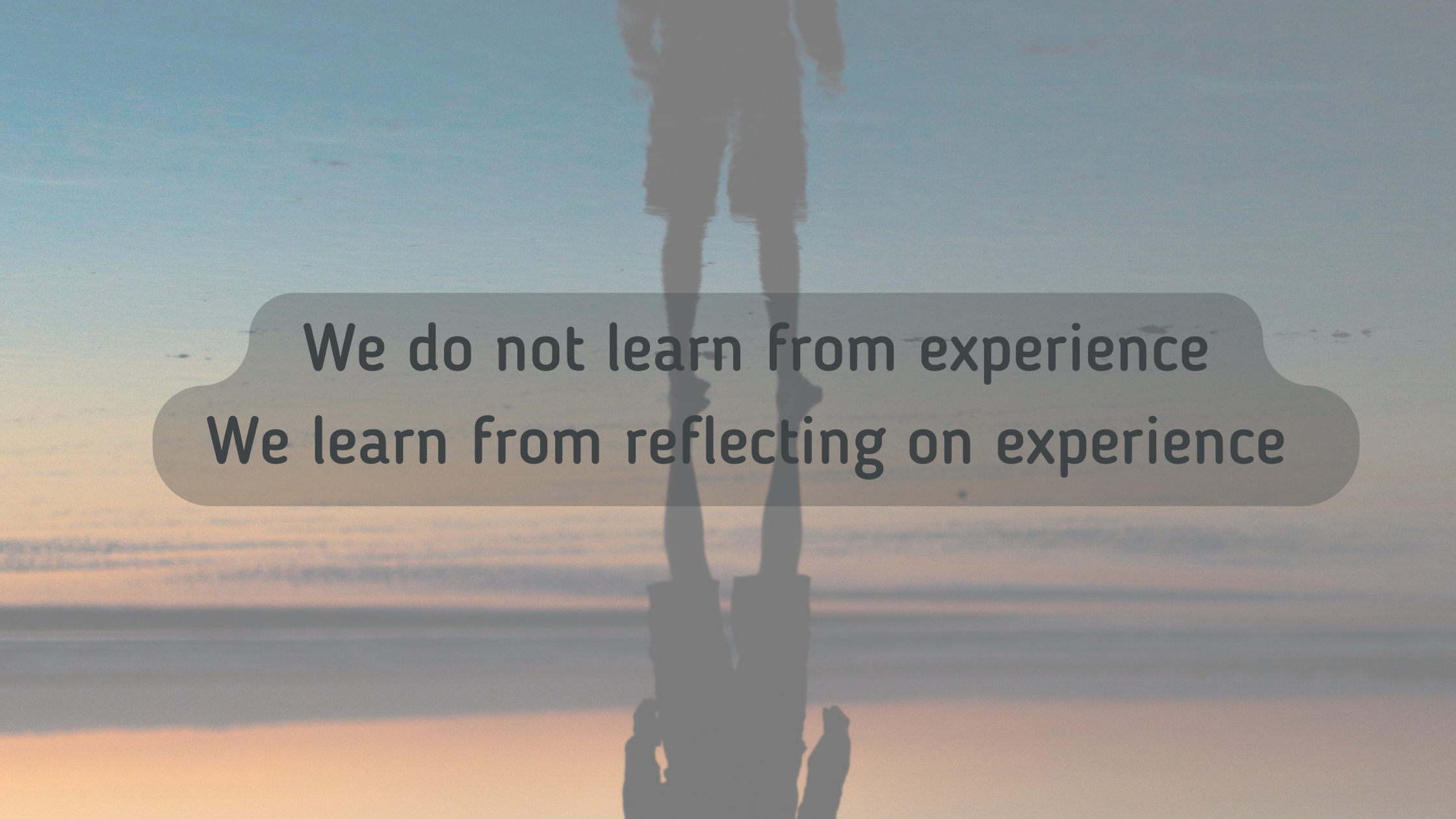Seeing Beyond
A few months ago, I couldn’t see past the end of October. The Healthcare Leadership Symposium was a big thing. I’ve never tackled anything like that before and the amount of work was fascinating. As always, it was the little things that caught me off guard and got me tapping into my creative problem-solving. There were also moments of risk and making decisions not knowing the outcome. So it feels natural that I’m in a reflective state about the event and all that surrounded it.
Reflection is a topic I keep coming back to in these emails and on the blog. Each time with a new perspective and slant, a new resource or tool. What remains the same is reminding us all why, as successful leaders in healthcare, we need to create and sustain a reflective practice.
Knowing why it matters as well as what’s in it for you, helps sustain a practice in the midst of everything else that is demanding your attention.
Keep things in perspective
Our natural negativity bias is great for keeping you alive in the face of potential life-threatening danger, but does mean you have to be intentional about all things you have done and achieved. In the final weeks leading up to the symposium when I felt I was juggling lots of things, I purposefully made a ‘done’ list to remind myself of what I had achieved in the day. This kept me from ruminating and beating myself for all those things I hadn’t got to yet.
Keep getting better
The findings point to the fact that you don't get better at something simply by having more practice. So while on the one hand, you do have to practice, you have to hold that alongside what you are trying to achieve, the outcome you are after. You improve when we step away and allow our brains to process the learning. The testing in practice of this principle found that in 15 minutes a day, there was a 23% improvement in performance. So for a small amount of time, there is a big boost in output.
When things aren’t going well
Maybe you’ve had some hiccups or you seem to have lost track of your team, your boss or your job as a whole. This article from HBR encourages self-reflection as an element of how you get back up and move onward in the right direction.
Staying intentional
Maybe it’s the next step, the carer leap, or maybe it’s about pause, rest and recharging. The thing that reflection guides you to means you are being intentional in whatever comes next. Most reflection tools ask the ‘so what’. The time reflecting leads to action, a plan or a direction. Sometimes that is to pause, that is to fly.
Following the Symposium we had a debrief and reflection session arranged for all involved in the planning and delivery of the day. The wonderful Gil Sewell, who I have learnt many things from led the session and introduced two additional questions to one of the simplest reflection frameworks you can use.
There are two things to note here. We had the debrief and reflection session in the diary before the event was finished. After a big ‘thing’ it’s really easy to tick it off, take a breath and move on. You lose all the potential learning if you do that. Taking and making the time to reflect as a team and hear all the voices involved gives you so much value. So, if you take nothing else from this week, book a reflection or debrief session in advance and honour it.
Secondly, debriefing and reflection don’t have to be overly complicated. Keeping it simple is a great mantra when working in the complexity of healthcare. You can see the tool we used below. And you can download it as a PDF here.














